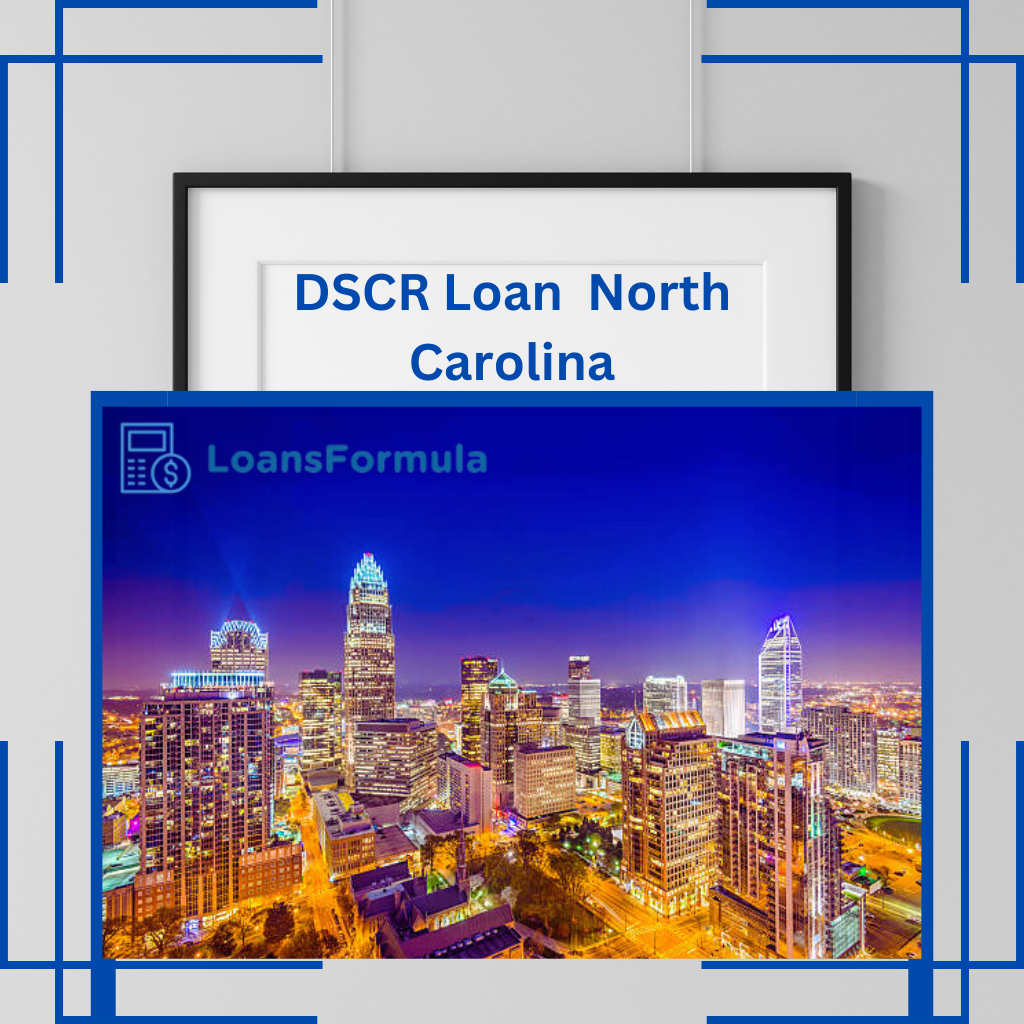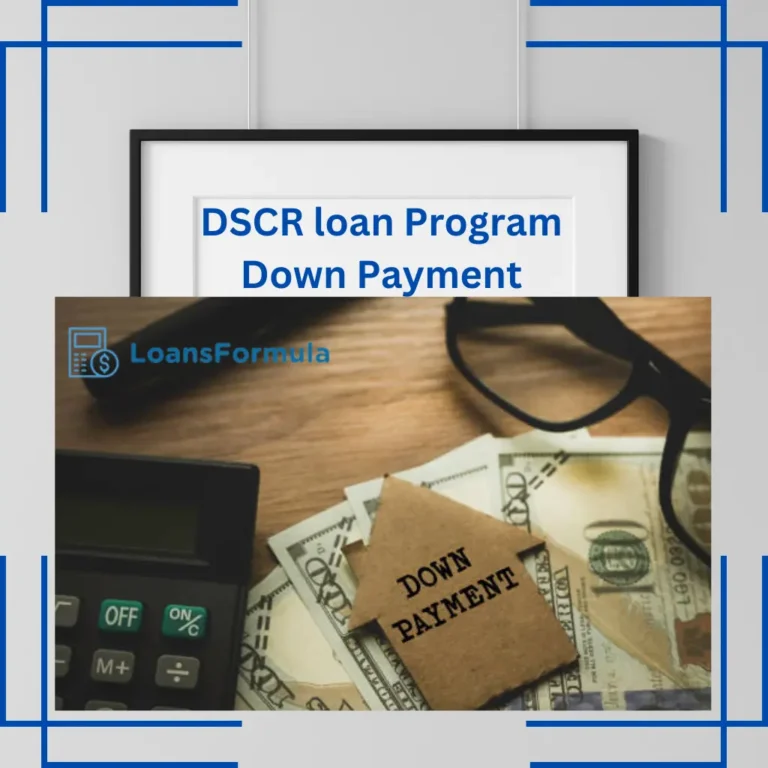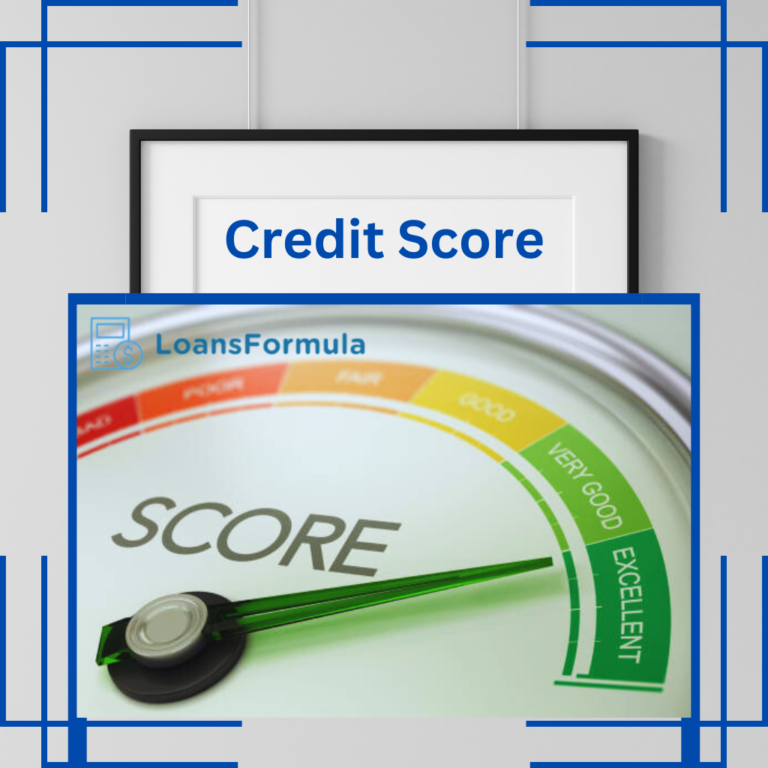DSCR Loan in North Carolina [2023]: Mortgage Possibilities without W2 Requirements
Do you intend to purchase an investment property in North Carolina? Now is the appropriate time. Why? Because home prices in North Carolina increased by 3.3% in 2023 compared to the previous year and are likely to rise even further in the coming year. You may easily and swiftly seize this wonderful opportunity to make a significant monthly rental income with the aid of a DSCR loan in North Carolina.
Today, we’ll talk about how you may use DSCR Loan North Carolina to acquire an investment property in North Carolina quickly and easily.
What is a North Carolina DSCR Loan?
Understanding what a North Carolina DSCR loan is requires understanding what it stands for. DSCR stands for Debt Service Coverage Ratio, a financial indicator used by lenders to assess a borrower’s capacity to repay a loan using the cash flow generated by a property.
How does it function?
The lender evaluates the property’s positive cash flow in a DSCR loan to determine the borrower’s capacity to make monthly payments.
The DSCR is typically calculated by dividing the property’s net operating revenue by its debt service, which includes principal and interest payments on the loan.
Net Operating Income / Total Debt Service = DSCR
If the resulting DSCR is 1 or above, the borrower is qualified for a DSCR loan, and the lender will approve the loan with a 20% to 25% down payment.
If the DSCR is less than one, lenders may want a greater down payment deposit and a higher interest rate to compensate for the additional risk.
How to Calculate DSCR Loan North Carolina?
Follow these steps for calculating DSCR:
- Determine the net operating income (NOI) of the property. This is the property’s income less its operational expenditures such as taxes, insurance, upkeep, and repairs. (NOI = rental income minus operational expenditures minus vacancy loss)
- The DSCR is calculated by dividing the NOI by the total debt service.
Example:
Assume you wish to calculate the DSCR for a North Carolina investment property with a $100,000 NOI and a total debt service of $80,000.
NOI / Total debt service = DSCR
DSCR = $100,000 / $60,000
DSCR = 1.67
The DSCR in this situation is 1.67, showing that the property’s revenue is 1.67 times the amount of debt payment, indicating a solid ability to repay the loan. To qualify a loan, lenders typically want a DSCR of 1 or above. Some mortgage lenders may also finance the home with a lower DSCR; however, the down payment and interest rates will be greater.
Advantages of a DSCR Loan in North Carolina
DSCR loans provide real estate investors with several options for financing their projects. The following are the three primary advantages of DSCR loans:
Personal income is not considered
One notable advantage of DSCR loans is that lenders do not demand the borrower to provide employment verification, evidence of income, or tax returns. Instead, they exclusively assess the subject property’s positive cash flow.
Faster closing times
Unlike traditional loans, the DSCR loan procedure bypasses processes like checking paystubs and doing job history background checks. As a result, the closure time is reduced.
Ability to commit to many properties
Unlike traditional loans, which force borrowers to make a one-time commitment to a single property, DSCR loans allow borrowers to acquire multiple properties. This allows investors to grow their investment portfolios more quickly.
Who Can Apply for a DSCR Loan North Carolina?
A DSCR loan is an option for anyone who wishes to avoid the time-consuming loan approval and paperwork process.
Real Estate Investors
People who engage in real estate for rental income or capital appreciation can qualify for DSCR loans. These investors may be the owners of rental, multi-unit, or commercial buildings.
Small businesses owners
DSCR loans are available to small business owners that operate out of own premises, such as retail shops, restaurants, or offices. These loans might assist in covering the costs of acquiring or remodeling a home.
Landlords
Individuals who own rental properties and earn an income from them can apply for DSCR loans to fund the acquisition or refurbishment of additional properties.
Self-Employed
DSCR loans are a great method for self-employed folks to finance their investment property without providing personal income or job verification.
Therefore if you are seeking money to purchase a rental property in North Carolina, consider applying for a DSCR loan in North Carolina as soon as possible.
DSCR Loan North Carolina Requirements
The requirements for a DSCR loan in North Carolina differ based on the lender and the kind of funded property. However, there are certain common standards that borrowers in North Carolina must normally meet in order to be qualified for a DSCR loan:
A good credit score
To be qualified for a DSCR loan, applicants must have a credit score of at least 620; the particular score requirement varies depending on the lender and property type.
Positive cash flow
The financed property must have a positive cash flow in order for the borrower to be able to meet their loan commitments.
Lenders typically compute the Debt Service Coverage Ratio (DSCR) of the property to see whether the cash flow is sufficient to support loan repayments.
Property documentation
Borrowers must provide financial accounts and appraisals to show that the property has a DSCR of one or higher.
Property Appraisal
The appraiser estimates the potential rental revenue of the investment property using Fannie Mae form 1007. This form includes a rent schedule that establishes the market rent for the property. The appraiser may then certify the property’s projected rental revenue in the future.
Down payment
Borrowers with a DSCR of 1 or higher are often required to make a 20% to 25% down payment. Few lenders, however, would finance the property even if the DSCR is less than one, with a greater down payment and higher interest rates on the financed property.
It is important that borrowers should evaluate offers from different lenders to discover the best terms and pricing for their specific circumstances.
How Do You Get a DSCR Loan in North Carolina?
Applying for a DSCR loan in North Carolina is a pretty simple and painless process. All you have to do is follow these eight simple steps.
Step 1: Locate a Lucrative Property
The first step is to locate a property that can provide a positive cash flow.
A good property should have a DSCR of 1 or above.
HomeAbroad can link you with the most experienced real estate agents that can assist you in finding the ideal home to have your loan approved.
Step 2: Look for the Best Lender
Finding a lender who specializes in DSCR loans is critical. To assist you determine which loan to partner with, seek quotations from many lenders and compare their terms and conditions.
Step 3: Calculate Property Income
To qualify for a DSCR loan in North Carolina, the borrower must provide proof of future income generated by the property.
This includes producing a projected rent roll, a cash flow statement forecast, and any other required papers proving the property’s financial viability as an investment.
Step 4: Submit an application for the loan
After deciding on a lender, the next step is to apply for a loan by completing an application form and supplying all necessary papers. A property appraisal report and an anticipated debt service coverage ratio are normally required documents.
Step 5: Rent Schedule 1007
The 1007 Rent Schedule is a form used in the mortgage business to document an investment property’s rental revenue. This form is intended to assist lenders in determining a property’s cash flow and determining the borrower’s capacity to repay the loan.
The 1007 Rent Schedule normally contains information such as total monthly rental revenue, the number of units in the property, and any rental property charges such as property taxes, insurance, and maintenance costs.
Step 6: Underwriting
The underwriting staff will review all qualifying conditions and compute the DSCR to determine whether you are eligible for the loan.
If everything fulfills the lender’s standards and terms, the team will issue a pre-approval letter. This is a necessary step in order to receive a DSCR loan in North Carolina.
Step 7: Loan Acceptance
Once the loan is authorized, the lender will go through important loan terms with the applicant, such as monthly payments, interest rates, and closing expenses.
After evaluating and agreeing the loan conditions, the lender will send you a loan commitment or pre-qualification letter.
Step 8: Closing
Closing a DSCR loan in North Carolina typically takes roughly 21 days, which is far faster than the traditional loan process, which often takes 3 to 6 weeks.
During the closing procedure, you will be required to sign legal documents and pay closing charges. The cash will be available within a few business days once the loan has been authorized.
What are the DSCR mortgage interest rates in North Carolina?
DSCR loan interest rates are often higher (1% to 2%) than traditional loan interest rates, which range from 7.5% to 9%. The lender, the kind of property, your credit score, and your DSCR will all influence your interest rate. So, comparing rates from several lenders is critical in order to locate the best one for you.
However, before we get into the specifics of DSCR loans in North Carolina, let’s take a brief look at the North Carolina property market to get a better sense of rental income and appreciation potential.
Real Estate Investing Strategies in North Carolina
Here are some recommendations for real estate investors considering investing in North Carolina:
Conduct Market Research
It is critical to grasp the current situation of the North Carolina real estate market. Inventory levels, property prices, rental demand, and vacancy rates may all be examined.
Select a Profitable Location
Look for locations with significant rental demand and great development potential. Consider the local demand for different types of properties, such as single-family houses, townhomes, or condominiums, while selecting a location or area. To make educated selections, familiarize yourself with the area’s inventory demands and supply.
Employ Local Experts
Work with knowledgeable real estate specialists, such as agents and property managers, who are familiar with the local market and can help you through the investing process.
Recognize the Legal and Regulatory Framework
Learn about Pennsylvania’s real estate investment rules and regulations, such as zoning laws, landlord-tenant legislation, and property tax restrictions.
Be Persistent
Examine possible investment properties in depth, including their financial and physical condition, as well as their potential for value increase.
Security Deposit
Landlords may request a security deposit from tenants. The deposit amount varies based on the kind of leasing agreement
- Week-to-week leases have a maximum rent of two weeks.
- Month-to-month agreements have a maximum rent of 1.5 months.
- For contracts with a greater rent payment frequency, the security deposit might be up to two months’ rent. However, North Carolina state law prevents security deposits from exceeding two months’ rent.
Although the customary security deposit amount is 1.5-2 months’ rent, landlords may select a smaller amount at their discretion.
Plan for Unexpected Costs
Prepare for unanticipated expenses such as property maintenance, vacancies, and property management fees.
Consider local growth and opportunity: Investors should prioritize purchasing investment property in places with consistent development and varied job prospects in a variety of industries, assuring long-term investment support.
Conclusion
The diversified nature of your holdings and the generation of profits over the long term may both be accomplished with the help of real estate investments in North Carolina. Before investing, it is essential, however, to get an understanding of the local market as well as the relevant legislation and processes.






